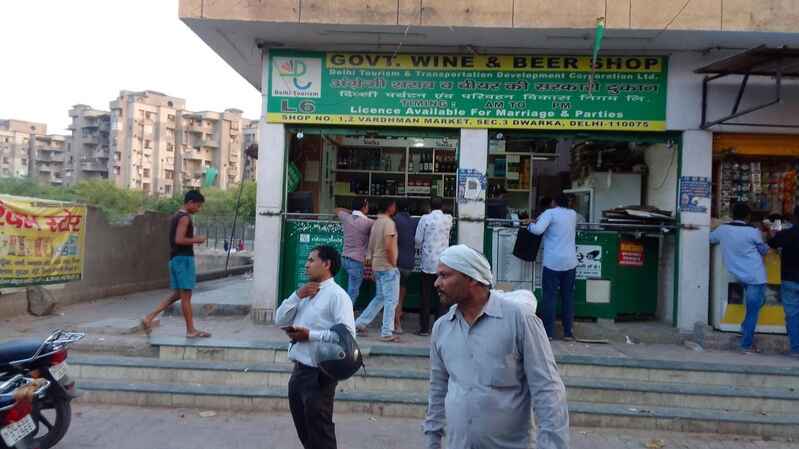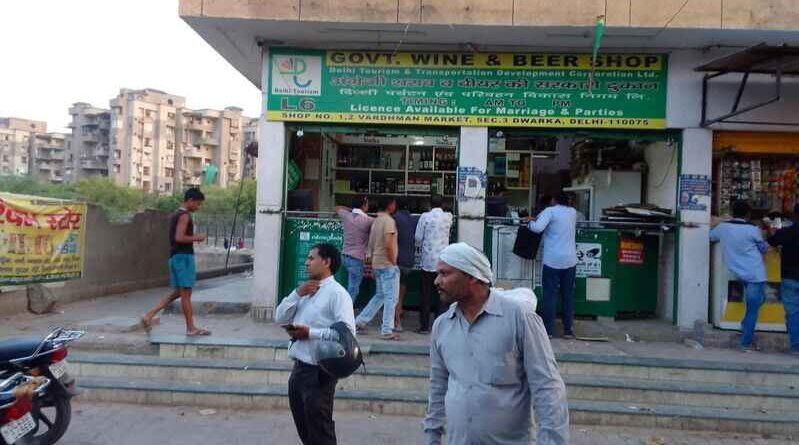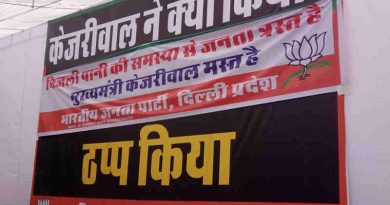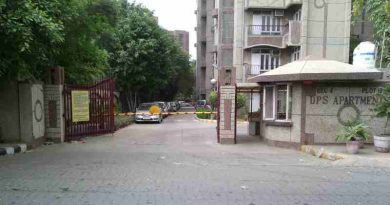How Enforcement Directorate Failed to Present Kejriwal Case in Supreme Court

Kejriwal Bail News
How Enforcement Directorate Failed to Present Kejriwal Case in Supreme Court
The court arguments in such money laundering cases should focus on global standards prescribed by the Financial Action Task Force (FATF).
By Rakesh Raman
In its judgment on July 12, the Supreme Court of India granted interim bail to Delhi chief minister (CM) and Aam Aadmi Party (AAP) leader Arvind Kejriwal.
A Delhi court had sent Kejriwal to judicial custody for 14 days – till July 12 – in connection with corruption charges in the Delhi liquor policy case. While Kejriwal was already in jail, the Central Bureau of Investigation (CBI) had arrested him on June 26 to interrogate him. After 3 days of custody, on June 29 Kejriwal was sent for 14 more days to jail on CBI’s plea.
Kejriwal was arrested on March 21 by the Enforcement Directorate (ED) for his alleged involvement in the liquor policy scandal. Kejriwal was arrested and sent to Delhi’s Tihar jail after he defied nine summonses of ED which had been calling him for questioning in the money laundering crime linked with Delhi liquor policy scam.
It is alleged that Kejriwal and AAP were bribed to approve a new liquor policy that would benefit certain wholesalers for whom the commission was arbitrarily increased from 6% to 12% of sales.
While the new policy was supposed to benefit the state government, the ED asserts it resulted in a loss of Rs. 2,631 crore to the public exchequer. In other words, the increased money was siphoned off by Kejriwal and AAP instead of depositing it to the state exchequer.
The ED had arrested Kejriwal, who according to ED is the “kingpin” or the key conspirator in the liquor scandal. The ED alleged that Kejriwal is part of a conspiracy to deliberately leave loopholes in the now-scrapped Delhi excise policy for 2021-22 to benefit certain liquor sellers.
As a result of the dubious excise policy for liquor sales, the state’s revenue dropped to Rs 3,700 crore from Rs 6,300 crore in the previous year, although the Kejriwal government had asserted that the revenue earning will increase to Rs 9,000 crore.
This loss to the state exchequer is a major corruption crime which falls under the grand corruption and rent-seeking categories of white-collar financial crimes in which direct or physical evidence is not required.
In a startling revelation, the ED also revealed that with the aim to destroy evidence, 140 mobile phones were changed by over 30 persons allegedly involved in the liquor scam of Delhi. It is learnt that Kejriwal is also not giving access to his phone to the investigating agencies.
Obviously, the attempt to change the liquor policy with the intention to cause a loss to the state exchequer – and with the possibility of misappropriation of public money – is a very strong circumstantial evidence against Kejriwal and other AAP politicians.
The destruction of digital evidence is also an obstruction of justice offence for which Kejriwal and his accomplices cannot be released on bail. If any court releases Kejriwal or his accomplices, they can make more attempts to destroy the evidence and influence the witnesses by intimidation or allurement.
ERRATIC COURT DECISIONS
Although ED provided these details of its investigation to the top court, the agency could not emphasize the fact that it is a financial crime including money laundering case. In such crimes, the recovery of money is not essential to incarcerate an accused who is arrested on the basis of circumstantial evidence.
The naive lawyers and ignorant Supreme Court judges Sanjiv Khanna and Dipankar Datta argued about Kejriwal’s massive corruption case as if they were discussing about a petty street thief.
Earlier, in May 2024 also, these judges had arbitrarily granted bail to Kejriwal as he desired to campaign for AAP in the Lok Sabha election. But the judges did not extend their kindness to other prisoners such as Kejriwal’s jailed colleagues Manish Sisodia and Satyendar Jain.
As the Supreme Court judges are known for taking erratic decisions which defy law, they let off an accused (Kejriwal) who was incarcerated for a serious financial crime in the Delhi liquor policy scam.
There are a slew of other political prisoners who are languishing in Indian jails because the Supreme Court judges and other judges of courts want them in jails without any reason.
For example, a student leader Umar Khalid has been repeatedly denied bail because some judges want to keep him behind bars without formal conviction. During his four years in jail, Khalid’s bail application was arbitrarily rejected 14 times because he was raising his voice against the atrocities of the ruling regime.
Similarly, a youth Sikh leader from Punjab Amritpal Singh has been incarcerated in the Dibrugarh jail of Assam because he was opposing the hostile actions of the Punjab Government. But his repeated appeals to get bail have fallen on deaf ears.
While Kejriwal was granted bail by the naive Supreme Court judges for the Lok Sabha election campaign, surprisingly Amritpal Singh was not given bail even for contesting the same Lok Sabha election, which he eventually won while still in jail.
It clearly shows that either the Supreme Court judges are too ignorant or they get influenced by some extraneous factors while handling the court cases.
A few days ago, the same bench of Justices Sanjiv Khanna and Dipankar Datta had rejected the petitions that demanded to stop the fraudulent use of electronic voting machines (EVMs) in elections. While these judges are clueless about the EVM technology and its functioning, they dismissed the EVM petitions without giving a proper reason.
Those who think that Kejriwal’s lawyers are presenting his case effectively in courts are wrong because judges do not apply law and take their decision based on their whims. Lawyers are not effective in courts, but they subtly carry out media campaigns through complicit TV channels, YouTube programs, or Twitter to influence the weak judges so that they should give favourable judgments for their affluent clients.
Another colleague of Kejriwal, Sanjay Singh – who was also in Tihar jail in the same liquor mafia case – was granted bail on April 2 when the ED did not object to his bail. In this case too, the court took an arbitrary decision in which the AAP lawyers had hardly any role to get bail for him.
If you evaluate the judgments of the Supreme Court through an Artificial Intelligence (AI)-based expert system, you will find that almost all the judgments, dismissal of petitions, or delays in decisions are either wrong or biased in favour of the ruling politicians. The situation is worse in high courts and lower courts where judges are more corrupt and almost illiterate.
Now, after getting bail from the court, it is likely that Kejriwal will never go back to jail and will keep hoodwinking the pliable judges who either do not understand law or do not want to apply law, although the ED has called Kejriwal a “kingpin” in the liquor scandal.
Since Indian courts are not working honestly, their performance is condemned all over the world. According to the latest 2023 Rule of Law Index of the World Justice Project, India’s score declined from 0.50 in 2022 to 0.49 in 2023 and India ranked 79th across 142 countries in 2023 while the civil and criminal justice systems in the country are on the verge of collapse. The World Justice Project findings are consistent with the incidents of increasing judicial corruption in India.
UNPROFESSIONAL JUDGES AND UNTRAINED ED OFFICIALS
The professional court arguments in such white-collar financial crimes or money laundering cases should be around circumstantial evidence, beneficial ownership, asset recovery mechanisms, shell companies, virtual money transactions, money muling, and so on.
But the unprofessional judges, untrained ED officials, and unskilled lawyers have been beating about the bush in courtrooms to ensure that Kejriwal gets bail, although there is enormous direct and circumstantial evidence against him to keep him in jail for many years.
In fact, the court arguments in such money laundering cases should focus on global standards prescribed by the Financial Action Task Force (FATF), which is an international money laundering and terrorist financing watchdog. FATF sets international standards that aim to prevent these illegal financial activities and the harm they cause to society.
As FATF also sets global standards on beneficial ownership transparency, it had agreed in March 2022 for tougher global beneficial ownership rules to stop criminals from hiding their illicit activities and dirty money behind secret corporate structures.
But the Indian agencies and courts are so primitive that they are perhaps not even aware of FATF rules on beneficial ownership requirements. The inexperienced ED officials do not publicly release the real beneficial ownership registers of accused who are involved in money laundering crimes.
The accused in the Delhi liquor scam and other money laundering cases such as the Adani Group scam get off scot-free because the ED officials, lawyers, and court judges who handle these cases are either illiterate, or lack the knowledge of law, or have limited domain expertise, or they are outrightly corrupt.
Although Kejriwal is still in jail because he is facing separate charges in the Delhi liquor policy scandal that the CBI is investigating, he is soon expected to be released because Indian investigating agencies and courts are crowded with dishonest and delinquent functionaries.
[ VIDEO: क्या अरविंद केजरीवाल को जमानत मिलनी चाहिए? ]
As courts are working erratically in India, bail to politicians means their virtual acquittal. They seldom get jailed again. For example, Congress leaders Rahul Gandhi and Sonia Gandhi – who were questioned in 2022 by the ED for a money laundering case linked to the National Herald newspaper – have never been called again and the fate of that case is still not clear.
Similarly, after getting bail in the Delhi liquor policy case, Kejriwal and AAP will claim that he has been acquitted by the court and soon people will forget about this case. And political corruption will persist in India. Unfortunate but true.
By Rakesh Raman, who is a national award-winning journalist and social activist. He is the founder of the humanitarian organization RMN Foundation which is working in diverse areas to help the disadvantaged and distressed people in the society.
He has also been publishing The Integrity Bulletin news magazine since 2018 to cover local and international corruption issues to engage with different stakeholders who are trying to combat corruption in the world.
In order to inform the Indian citizens and the global community about the extent of corruption in India, he compiled and released in October 2023 a comprehensive research report “India Corruption Research Report 2023 (ICRR 2023)”. It is the second annual report on corruption in India while the first report ICRR 2022 was released in October 2022.
He runs a community-driven anti-corruption social service “Clean House” to help the residents of Delhi raise their voice against the growing corruption and injustice in housing societies where millions of people suffer because of rampant corruption and lawlessness.





